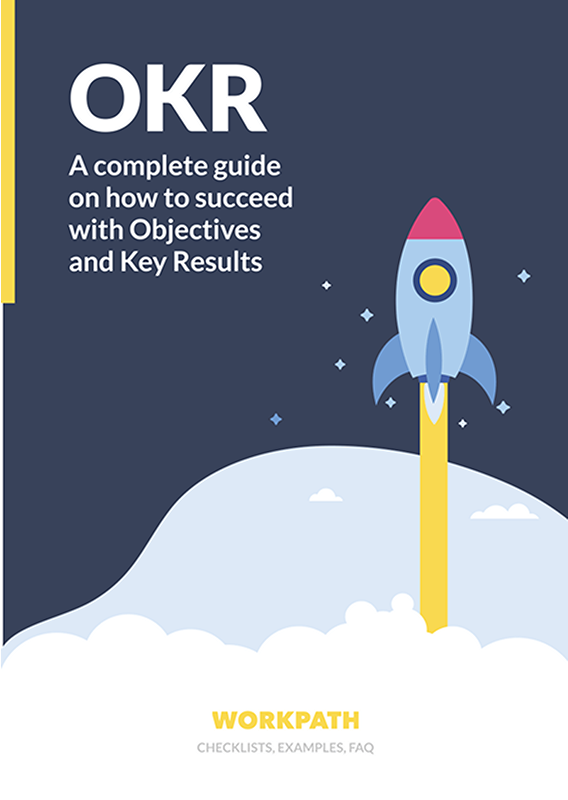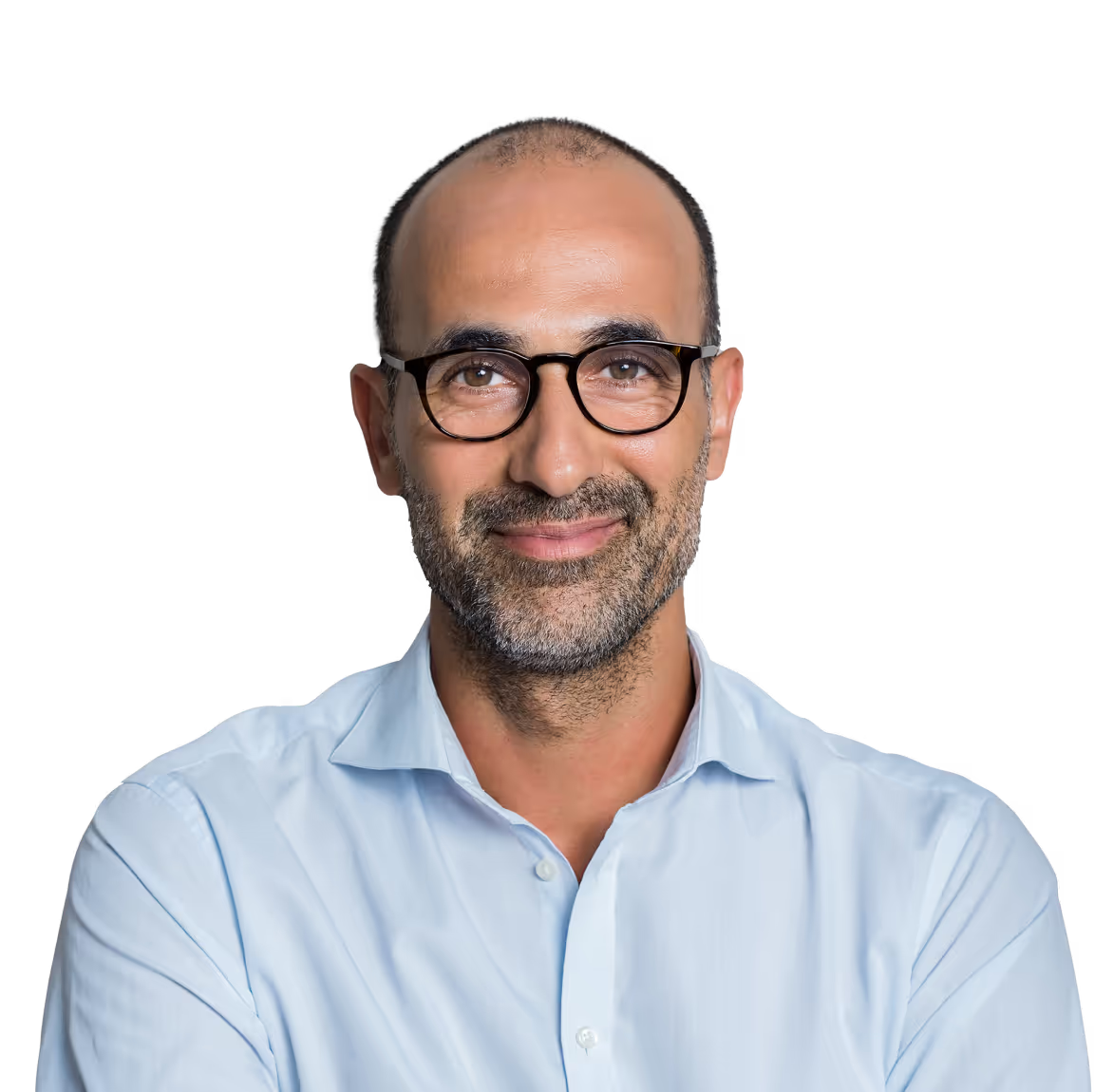Clear responsibilities are the backbone of a successful Objectives and Key Results (OKR) rollout. A well-defined allocation of roles not only brings clarity to the workflow, but also instills ownership, facilitating smooth execution of the process.
In this article, you'll learn about the key roles and how they need to work together to ensure a successful change process.
Successful OKR implementation requires four key roles
Program Lead Office
Responsible for the roll out of OKRs within the organization
They are entrusted with creating a Rollout Plan, managing all internal stakeholders, and ensuring a smooth implementation of the OKR process. Additionally, the PLO team facilitates regular management reporting for executives, keeping them updated on the progress and success of the OKR implementation. They also manage the OKR Coach Community, leading a team of coaches who offer guidance and support to teams throughout the OKR process. Once implemented, they 'own' the internal OKR process and are responsible for adapting it to the organization's needs from cycle to cycle.
OKR Coach Community
The OKR Coach Community provides extensive support and guidance to teams
Their role is essential in promoting a clear understanding of OKRs across all levels of the organization and supporting teams in their effective execution. In addition, the OKR Coach Community is in constant communication with the Programme Lead Office, sharing insights and best practices to optimize the process and contribute to the overall success of the rollout. In general, they foster an outcome-oriented mindset and play a critical role in the success of the OKR process.
Sponsor
Executive Sponsor as lead supporter from management
The Executive Sponsor's engagement in the OKR process is vital, providing assistance to the PLO whenever challenges arise. The Sponsor is involved in the development of the rollout plan, ensuring that the plan is on budget, efficient and likely to deliver successful results. The Sponsor also promotes the framework internally by communicating the OKRs at company events and is involved in the actual operational processes, such as drafting, once the framework is implemented.
Leadership
Needs to take active part as role model in the OKR process
Leaders set the tone, direction and vision for the entire organization. Their commitment is critical to seamlessly integrating OKRs throughout the organization and fostering an outcome-oriented mindset at all levels. In addition, leaders can benefit from coaching to align their leadership approach with the OKR process and to skilfully address any challenges that may arise.
An effective change ecosystem must be the foundation on which the roles interact
The various key roles need to interact in a way that not only facilitates the correct roll-out, but also demonstrates its value to the relevant people. An effective change ecosystem is the basis for this:

Two roles are most crucial to roll out OKRs in an organization
The Program Lead Office and OKR Coach Community must be carefully staffed to ensure a successful OKR program, as they are deeply involved in the events of the OKR Cycle.

Learn more about the OKR cycle in our article
Therefore, you have to make sure that the people you assign are committed to the mission, have the right role fit and have the skills to perform the key tasks. We have summarized this information in the table below to help you make an informed decision.
Program Lead Office (PLO)
OKR Coach Community
How Workpath supports the OKR Rollout
Workpath provides a range of individualized support services to assist in your OKR process.
Customer Success Manager
The Customer Success Manager (CSM) is the trusted advisor to Workpath customers during the OKR rollout. The CSM guides the customer through the entire customer journey and ensures that the expected business value is achieved. The CSM enables the customer to implement Workpath, provides recommendations on how the process can be developed, and discusses product feedback and requirements. The role of the CSM is therefore central to improving customer experience and satisfaction.
Customer Support
Workpath Customer Support is dedicated to ensuring customer satisfaction. Whether it is a product question or a potential bug report, our team is here to help. Workpath Support can be contacted at support@workpath.com at any time to resolve technical issues.
Customer Education Specialist
The aim of our Customer Education Specialist is not just to provide an additional service, but to act as an enabler for a successful OKR process. We believe in empowering our customers with the knowledge and tools they need to be successful. Additional services include;
- Decision Support Services: Identify, discuss and prioritize key barriers to effective strategy execution. Feel more confident and prepared for your OKR rollout
- Health Checks: Review your current strategy execution process. Get a complete assessment & unlock the full potential of your OKR process
- OKR Masterclasses: Gain skills & knowledge to feel confident and prepared for your first cycle. Master OKRs for organizational growth through practical experience and coach insights
- And much more
FAQ
What are the roles and responsibilities during an OKR rollout?
The roles and responsibilities in the Objectives and Key Results (OKRs) process include the Program Lead Office (PLO), OKR Coach Community, Sponsor, and Leadership. The PLO oversees the roll out of OKRs, creating a Rollout Plan, managing internal stakeholders, and updating executives. The OKR Coach Community provides guidance to teams, helping them understand and execute OKRs effectively. The Sponsor, typically an executive, offers vital support to the PLO and helps in crafting the Rollout Plan. Finally, the Leadership has the responsibility to actively participate in drafting top-level OKRs and aligning their leadership style with the OKR process.
What is the role of the OKR champion?
The term 'OKR champion' can refer to either the Program Lead Office (PLO) or the OKR Coach. These individuals champion the OKR process within the organization, providing guidance, facilitating alignment and communication, and helping teams navigate the process. They also monitor progress and performance against OKRs and encourage adherence to the OKR process across the organization.
What is the role of OKR Master?
An OKR Master, similar to an OKR Coach, is a role assumed by someone who has extensive experience and understanding of the OKR methodology. They act as a mentor, educator, and facilitator to guide teams and individuals in implementing and executing OKRs. They ensure OKRs are correctly defined, aligned with organizational goals, and consistently tracked and reviewed.
What is the OKR process?
The OKR process refers to the iterative framework of defining, tracking, and reviewing Objectives and Key Results within an organization. It includes setting strategic goals (Objectives) and measurable outcomes (Key Results) to achieve those goals. The process involves several stages, including drafting OKRs, aligning OKRs across the organization, conducting regular check-ins to track progress, reviewing OKRs at the end of a cycle, and conducting a retrospective to learn from the process and make improvements.
What is an OKR roadmap?
An OKR roadmap is a strategic plan that outlines the organization's main objectives and the key results that will indicate progress towards these objectives over a certain period. It provides a clear path for what the organization wants to achieve and how it plans to do so. The roadmap is often divided into quarters, aligning with the typical OKR cycle, and is a vital tool for communicating the company's strategic direction.
Who owns the OKR process?
The ownership of the OKR process typically lies with the Program Lead Office (PLO). They are responsible for driving the implementation of the OKR process at all levels of the organization and ensuring that it is correctly adhered to. However, effective OKR implementation requires the active involvement and commitment of everyone in the organization, including the OKR coaches, leadership, and all teams and individuals setting and working towards OKRs.


.webp)



